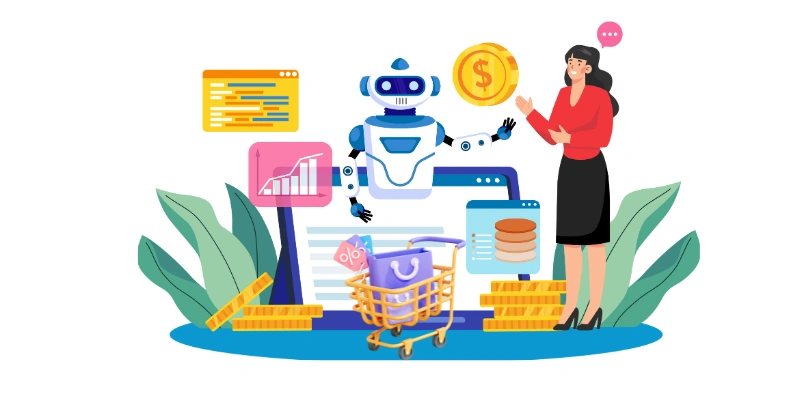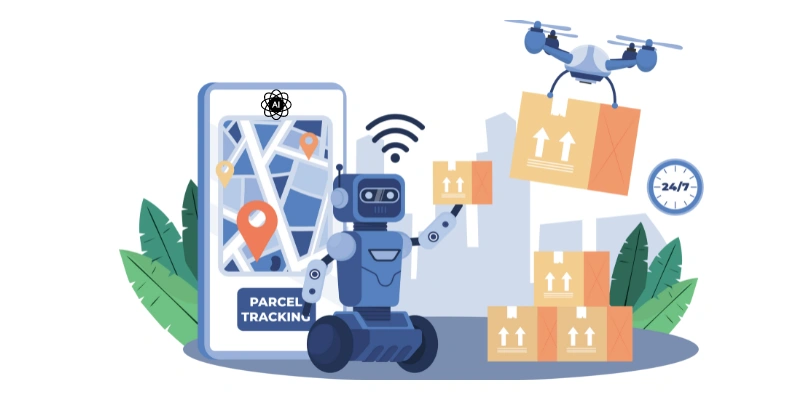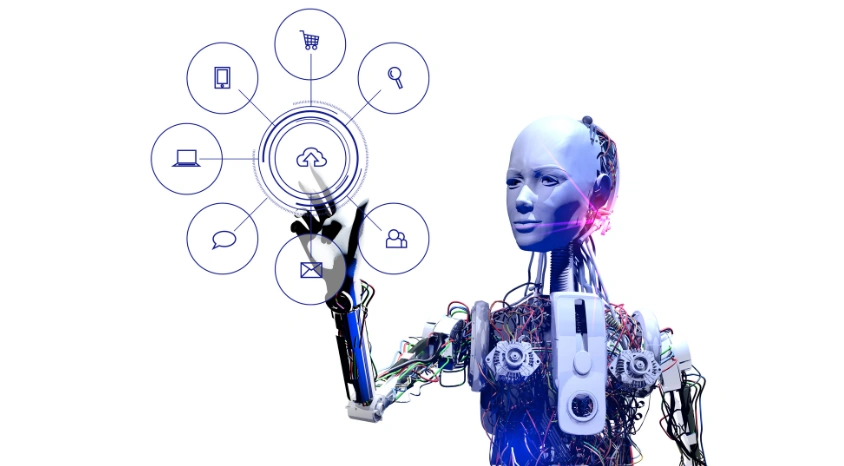Here we are in an ever-changing, ever-growing retail realm, identifying what customers want before they even realise it can make all the difference between success and failure. For South African retailers, this is increasingly vital as competition intensifies and consumer preferences change swiftly. Harnessing cutting-edge technologies such as Artificial Intelligence (AI) to forecast consumer behavior has become indispensable. This discussion investigates into the profound impact of How AI Predicts Consumer Behavior and is reshaping the retail landscape in South Africa, empowering businesses to foresee consumer demands and customise their offerings accordingly.
Understanding AI in Retail
What is AI and How is it Used in Retail?

Artificial Intelligence, often abbreviated as AI, is the simulation of human intelligence in machines programmed to think like humans and mimic their actions. In retail, AI applications range from customer service chatbots to sophisticated data analysis tools that can predict future consumer trends. By harnessing the power of AI, retailers can make sense of vast amounts of data, automate decision-making processes, and deliver personalised experiences to customers.
Importance of Predicting Consumer Behavior

Why Predicting Consumer Behavior Matters
Understanding and predicting consumer behavior isn’t just a nice to have; it’s a necessity in today’s retail environment. The ability to foresee what customers will want next can significantly influence marketing strategies and product offerings, leading to more effective and targeted campaigns. Moreover, by anticipating customer needs, retailers can enhance the overall shopping experience, foster customer loyalty, and boost sales.
Impact on Marketing Strategies and Product Offerings
When retailers can accurately predict consumer preferences, they can customise their marketing strategies more precisely and effectively. For instance, knowing that a particular demographic is likely to buy eco-friendly products allows a retailer to craft specific marketing messages that resonate with these values. Additionally, insights into consumer behavior can inform product development, ensuring that the products offered meet actual market demand.
Enhancing Customer Experience and Loyalty
Predicting consumer behavior enables retailers to create more personalised shopping experiences. Imagine walking into a store or visiting an online shop where the products you see are curated specifically for you, based on your past purchases and browsing history. This level of personalisation not only makes the shopping experience more enjoyable but also builds a stronger connection between the consumer and the brand, leading to increased customer loyalty.
How AI Predicts Consumer Behavior in South African Retail

Data Collection and Analysis
The foundation of any AI system’s ability to predict consumer behavior lies in data. South African retailers are increasingly using data collection tools to gather information on customer preferences, purchase history, social media interactions, and more. This data is then analysed using AI algorithms to identify patterns and trends that can predict future consumer behavior.
Machine Learning Algorithms
Machine learning, a key component of AI, is essential in accurately predicting consumer behavior. These algorithms can process large datasets far more efficiently than humans, learning from the data to make accurate predictions. For example, a machine learning algorithm might analyse past purchasing data to predict which products are likely to be popular in the upcoming season.
Sentiment Analysis
Another powerful AI tool is sentiment analysis, which examines consumer opinions and emotions expressed online, such as in social media posts and reviews. By understanding how consumers feel about products and brands, retailers can adjust their strategies accordingly. If sentiment analysis reveals a negative trend around a product, the retailer can take corrective action to address customer concerns.
Benefits for South African Retailers

Personalised Marketing Campaigns
One of the most significant advantages of using AI to predict consumer behavior is the ability to create highly personalised marketing campaigns. South African retailers can send targeted promotions and offers based on an individual customer’s preferences, increasing the likelihood of a sale. Personalised marketing not only drives sales but also enhances customer satisfaction by delivering content that is highly relevant to individual preferences.
Targeted Product Recommendations
AI-driven insights enable retailers to make more accurate product recommendations. By analysing a customer’s browsing and purchase history, AI can suggest products that are likely to appeal to them. This not only enhances the shopping experience but also increases the average order value, as customers are more likely to purchase additional items.
Improved Customer Engagement
Engaging with customers in meaningful ways is essential for building lasting relationships. AI can help South African retailers engage with their customers more effectively by providing personalised content, offers, and recommendations. This increased level of engagement fosters a sense of loyalty and encourages repeat business.
Challenges and Limitations

Data Privacy Concerns
While the benefits of using AI to predict consumer behavior are clear, there are also challenges, particularly around data privacy. Consumers are becoming increasingly aware of how their data is being used, and there is a growing demand for transparency and control over personal information. Retailers must navigate these concerns carefully, ensuring they comply with data protection regulations and maintain customer trust.
Accuracy and Reliability
Another challenge is ensuring the accuracy and reliability of AI predictions. Despite the immense power of AI systems, they are not without flaws. Predictions rely heavily on the quality of the underlying data; if that data is flawed or incomplete, the resulting insights can be inaccurate and potentially misleading.
Retailers must continually refine their AI models and validate predictions to ensure they provide reliable insights.
Future Trends

Advancements in AI Technology for Consumer Behavior Prediction
The future of AI in retail is bright, with ongoing advancements making AI tools increasingly sophisticated and accessible. Future innovations may include enhanced natural language processing, enabling retailers to understand and respond to consumer inquiries more effectively in real-time. Additionally, integrating AI with emerging technologies like augmented reality (AR) could create even more personalised shopping experiences, seamlessly merging the digital and physical retail environments.
In Summary
AI is revolutionising the retail industry, offering South African retailers powerful tools to predict consumer behavior. By leveraging AI, retailers can make informed decisions, create personalised experiences, and build stronger customer relationships. However, it is essential to address challenges such as data privacy and ensure the accuracy of AI predictions. As AI technology continues to evolve, its role in predicting consumer behavior will become even more significant, offering exciting opportunities for retailers to stay ahead in a competitive market.
For South African retailers, the time to embrace AI is now, setting the stage for a future where customer needs are not just met but anticipated with precision. Dive into more about AI in retail with similar topics such as AI in e-commerce.



